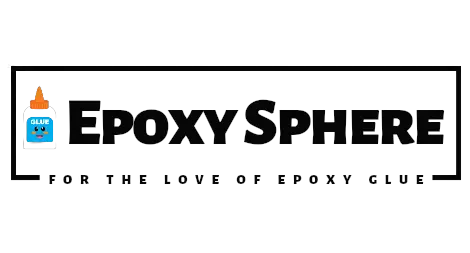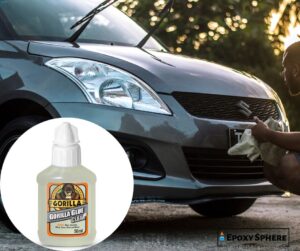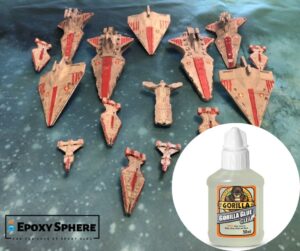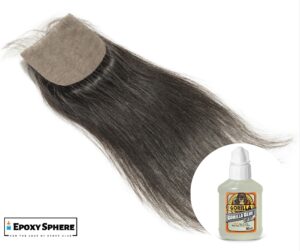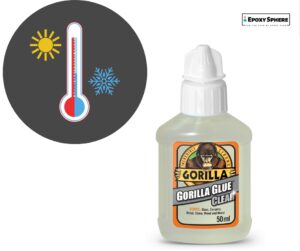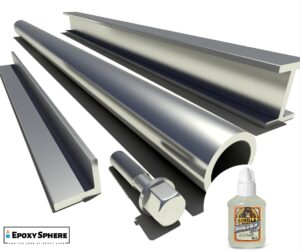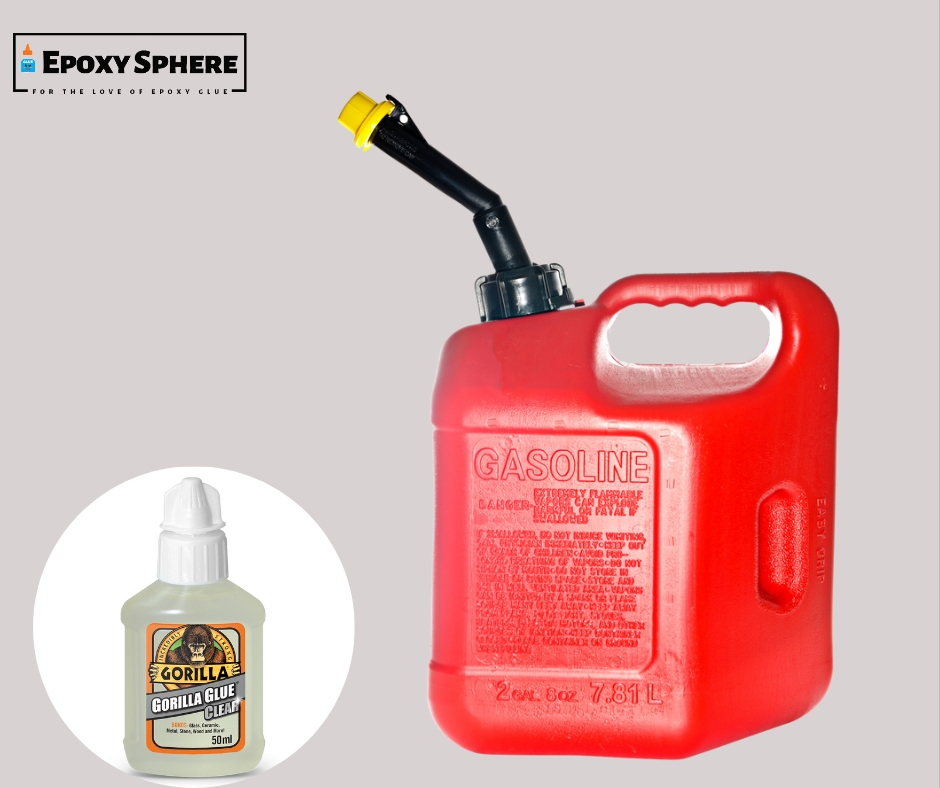
When it comes to Gorilla Glue, it’s is known for its strength and durability. But what about its resistance to gasoline?
Gasoline is a common solvent that can degrade adhesives, so it’s important to know whether or not gorilla glue can withstand exposure to this substance. If you are wondering if gorilla glue is resistant to gasoline, this post is for you.
What is Gorilla Glue?
Gorilla Glue is a fast-setting, all-weather, acid-free, all-purpose adhesive that is great for most woodworking projects. It bonds quickly to wood, plaster, ceramic, fiberglass, glass, metal, leather, cork, and stone.
Gorilla Glue is resistant to stains, moisture, rot, mildew, mold, and insects. It is ideal for repairing the furniture, cabinets, picture frames, flooring, molding, decorative items, wood carvings, musical instruments, door stops, model making, and tons of other uses.
This glue is a type of glue that can be reinforced with rubber. This makes it less brittle and more resistant to impact. It is also resistant to bumps, bangs, and drops.
Gorilla Glue is a glue product and a sealant that can be used on almost any surface. Although gorilla glue can be cleaned easily with soap and water, it will need to be scraped off if it leaves residue.
Can Gorilla Glue Be Gasoline-Resistant?
If you’re familiar with Gorilla Glue, then you know that it’s an incredibly strong adhesive. But what you may not know is that it’s also resistant to gasoline.
That’s right – if you need to glue something together that will be exposed to gasoline, Gorilla Glue is a great option.
So why is Gorilla Glue resistant to gasoline? It has to do with the ingredients. Gorilla Glue is made with polyurethane, which is a waterproof material.
Gasoline, on the other hand, is made with petroleum, which is not waterproof. When the two come into contact, the gasoline actually forms a barrier around the polyurethane, preventing it from being affected by the gasoline.
So if you need a strong, durable adhesive that can withstand exposure to gasoline, Gorilla Glue is a great option.
Gorilla Glue and Gasoline
There are many types of glue on the market, each with its own unique set of properties. Gorilla glue is a popular option for many projects, but you may be wondering if it is resistant to gasoline.
Gasoline is a powerful solvent that can break down many types of materials, so you need to be careful when using it near your Gorilla glued surfaces. If you inadvertently spill gasoline on your Gorilla glued project, it is important to act quickly.
Blot the spill with a clean cloth and then wash the area with soap and water. You may need to sand the area to remove any remaining residue.
In general, Gorilla glue is a strong and durable adhesive that can withstand many types of chemicals. However, it is always best to test a small area before using Gorilla glue on a large project.
What Are the Different Types of Gorilla Glue?
Looking for a super glue that’s tough enough to resist bumps, bangs, and drops? Look no further than the Gorilla Glue Gel! This reinforced adhesive is perfect for securing projects that need a less brittle bond, helping your project resist bumps, bangs, and drops.
With Impact-Tough technology, this glue is able to withstand more pressure than traditional Super Glues. Here are some of the different Gorilla Glue Gels available:
- Wood Gluing
- Rubber Gluing
- and Metal Gluing
Each type has its own specific application—Wood Gluing Gel is perfect for attaching wood; Rubber Gluing Gel bonds with rubber materials; while Metal Gluing Gel bonds with metal materials.
Whether you’re looking to attach pieces of furniture together or fix a broken surface, the Gorilla Glue Gel will help you get the job done quickly and easily.
Also, the most common types of Gorilla Glue are:
- Original Gorilla Glue
- Super Glue
- All-Purpose Glue
Each of these types of glue has its own unique set of features that make it ideal for different applications. Original Gorilla Glue is the original Gorilla Glue and is known for its strength and versatility.
It can be used on a variety of surfaces, including wood, metal, plastic, and ceramic. Super Glue is a newer type of Gorilla Glue that is specifically designed for use on smaller projects. All-Purpose Glue is a versatile Gorilla Glue that can be used on a variety of surfaces.
Is It True that Gorilla Glue Can Withstand Gasoline for A Long?
Gorilla glue is a great choice for many projects because it is very strong and has structural fillers to provide extra strength.
However, it is possible that gorilla glue is not compatible with gasoline for a long. If you are using gasoline near gorilla-glued surfaces, it is best to be cautious and test a small area first to see if there are any adverse reactions.
Will Gasoline Dissolve Gorilla Glue?
The science behind why gasoline will not dissolve gorilla glue is that gorilla glue is a reinforced epoxy that contains structural fillers to increase strength. Gasoline may not be strong enough to dissolve the fillers and thus could not break down the gorilla glue.
Can You Use Gorilla Glue on Gasoline Products?
The Gorilla Glue company’s stance on using their product with gasoline is that it is not entirely resistant to the fuel and will prevent it from curing completely. The glue side of Gorilla Glue is closest to the fuel, making it ineffective as a sealant.
Can Gorilla Glue Work on Patching a Leaking Gasoline Tank?
When it comes to finding a reliable adhesive, many people turn to gorilla glue. But how does this popular product hold up when it comes into contact with gasoline?
Interestingly, gorilla glue is actually resistant to gasoline. This means that it can be used in a variety of applications where other adhesives would fail.
So, if you’re looking for an adhesive that can stand up to tough challenges, like oil tank repairs, gorilla glue is definitely worth considering.
Conclusion
In summary, Gorilla Glue is a fast-setting, all-weather adhesive. It’s typically used to hold objects together, such as metals, drawers, frames, and so forth. This adhesive can go well with gasoline and its other products.
Gorilla glue is fine for gluing things that require pressure, such as wooden joints, but if you need something held in place by pressure alone, using a glue gun is a good option.

Hi, This is John Davis. After years of working in the construction industry, I decided to create a website that would provide people with information about glue and its exceptional uses. I hope You find it useful
